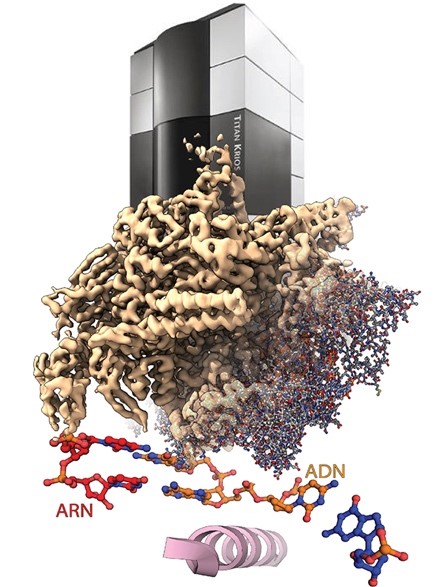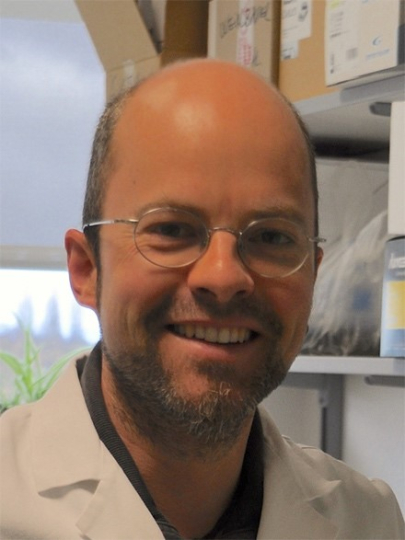Albert WeixlbaumerInstitut de génétique et de biologie moléculaire et cellulaire (IGBMC) - CNRS / INSERM / Université de Strasbourg
Mes recherches
I want to understand biology on the level of chemistry. One problem captivated me more than any other : How is the genotype, our cellular blueprint, converted into our phenotype in form of proteins? The two key players are RNA polymerase (transcribes DNA into RNA), and the ribosome (translates RNA into protein). After my undergraduate education at the University of Vienna, I joined Dr. Venki Ramakrishnan’s group (2004 - 2008) for my doctoral studies at the MRC - Laboratory of Molecular Biology in Cambridge, UK. I used X-ray crystallography to study ribosomal complexes that contributed to our understanding of decoding, ribosome recycling and termination of translation. I joined Prof. Seth A. Darst’s group at the Rockefeller University in New York as an HFSP postdoctoral fellow to work on transcriptional pausing (2008-2014). Several structures of paused RNA polymerase complexes provide insight into a fundamental regulatory process with implications for termination and fidelity. I received the ATIP-Avenir grant in 2013 and joined the IGBMC in Illkirch as a team leader in 2014. The support by the ATIP-Avenir program allowed me to setup a group and apply for competitive European grants. With my team, we use biochemistry and single particle Cryo-EM to study the regulation of transcription and supramolecular assemblies involved in gene expression.
Mon projet ATIP-Avenir
Structural studies on the regulation of transcription
In the first step of gene expression, RNA Polymerase (RNAP) transcribes RNA from DNA. Crystal structures of functional RNAP complexes revolutionized our understanding of transcription and paved the way for more complex questions addressing the regulation of transcription. Because of its fundamental role, transcriptional regulation impacts every aspect of biology including a growing list of human diseases. Transcriptional pausing, a process in which RNAP temporarily halts, is involved in regulation and termination of transcription, assigning a critical role to this process. Likewise, a process called promoter proximal pausing plays important roles in controlling transcription in the early elongation phase in eukaryotes. A detailed and mechanistic understanding of transcriptional pausing and transcriptional regulation in general is thus a crucial open question in biology. This is the area where we contribute. We study the role of protein and small non-coding RNA regulators involved in regulation of transcription using bacterial RNAP as our model. We combine biochemistry and single particle Cryo-EM and will now extend our studies to eukaryotes and supramolecular assemblies.

A combination of biochemistry and structural biology, in particular single particle Cryo-EM (depicted), allows us to study important machineries involved in the expression of genetic information in great detail and understand them on the level of chemistry. The aim is not only to shed light on important problems in biology but also to provide insights that help fight infectious diseases or better understand human pathologies.
Albert Weixlbaumer est également lauréat ERC Starting Grant 2015
